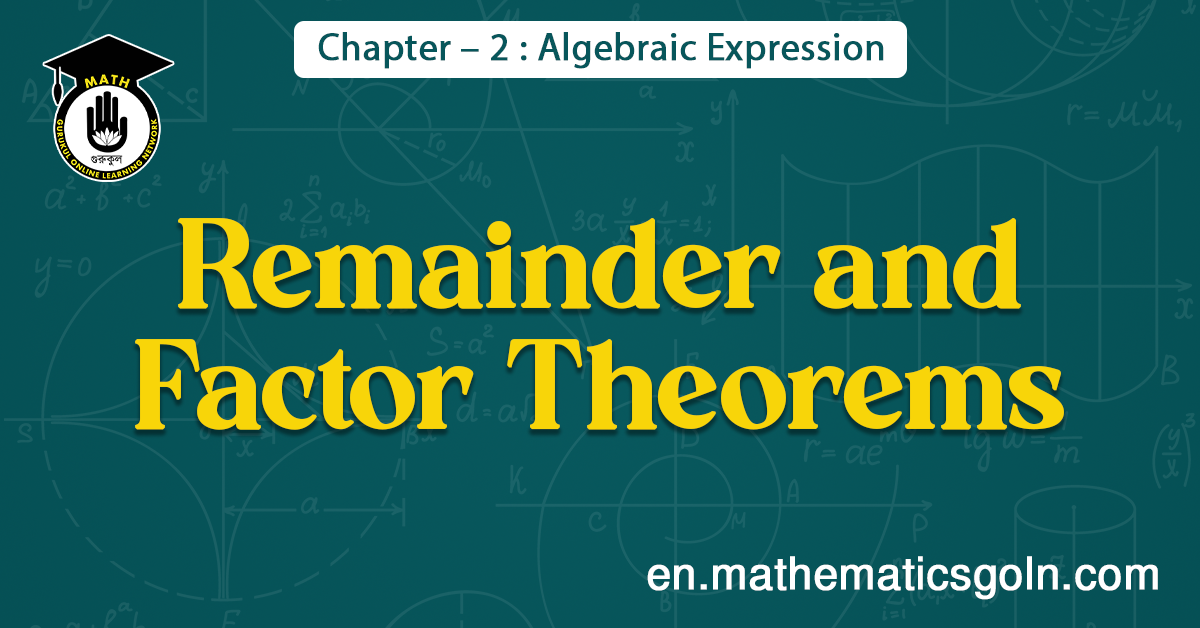Today is our topic of discussion Remainder and Factor Theorems .
Remainder and Factor Theorems

In this section we shall deal with polynomials of one variable only. First, we consider the two examples.
Proposition 1 (Remainder Theorem).
If P(x) is a polynomial of positive degree and a is any definite number, the remainder of the division of P(x) by x – a will be P(a).
Proof:
If we divide P(x) by x-a the remainder is either 0 or a non-zero constant. Suppose, the remainder is R and the quotient is Q(x), then by law of division, for all x.
P(x) = (x − a)Q(x) + R
Putting x = a in (i) we get, P(a) = 0· Q(a) + R = R. Therefore, the remainder of P(x) upon division by x-a is P(a).
Proposition 2.
If P(x) is a polynomial of positive degree and a ≠ 0, the remainder of the division of P(x) by ax + b will be P(-b/a).
Proposition 3 (Factor Theorem).
If P(x) is a polynomial of positive degree and if P(a) = 0, so xa is a factor of P(x).

Proof:
The remainder of P(x) upon division by x-a is P(a) = 0 [given]. This means, the polynomial P(x) is divisible by xa… xa is a factor of the polynomial P(x).
Converse of Factor Theorem
Proposition 4.
If x-a is a factor of the polynomial P(x), show that P(a) = 0.

Proof:
Since x-a a is a factor of P(x), there exists a polynomial Q(x) that P(x) = (x-a)Q(x). Putting x = a we get, P(a) = (a− a)Q(a) = 0· Q(a) = 0.

2 thoughts on “Remainder and Factor Theorems”